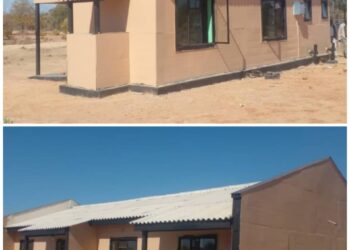The decommissioning of the Prince Edward water treatment plant has sparked fears of a catastrophic humanitarian disaster in Harare and Chitungwiza.
According to NewZimbabwe, the plant’s closure, prompted by the drying up of Harava and Seke dams, has reduced water supply by 70-80 megalitres daily, exacerbating existing shortages.
The El Nino-induced drought has worsened the situation, leaving the local authority reliant on the next rainy season’s water harvest.
The Combined Harare Residents Association (CHRA) has warned that this move will lead to devastating health consequences in both cities, as the already strained water supply is further compromised.
Residents are bracing themselves for a severe water crisis, with potential repercussions for public health and wellbeing.
“The CHRA is warning of a serious humanitarian disaster if urgent contingency plans are not put in place following the decommissioning of the Prince Edward water purification plant by the City of Harare due to the lack of raw water in the Seke and Harava dams.
“This has increased the water supply deficit in the city and worsened the ongoing water crisis, impacting the residents of Harare and Chitungwiza.
“We reiterate that the lack of raw water in the Seke and Harava dams due to the El Nino-induced drought is a reality of the impact and effects of climate change, which require inclusive climate action and disaster risk reduction planning for resilience building,” read the statement.
The CHRA has lambasted city authorities for their failure to implement alternative water management strategies, exacerbating the current crisis.
The slow development of Kunzvi dam, a potential solution, has further compounded the issue. CHRA is urging the Harare and Chitungwiza councils, along with the central government, to allocate emergency funds to address the water shortage, which poses significant health risks to residents.
The association is calling for swift action to mitigate the crisis and ensure access to clean water, highlighting the need for proactive measures to prevent a full-blown humanitarian disaster.










